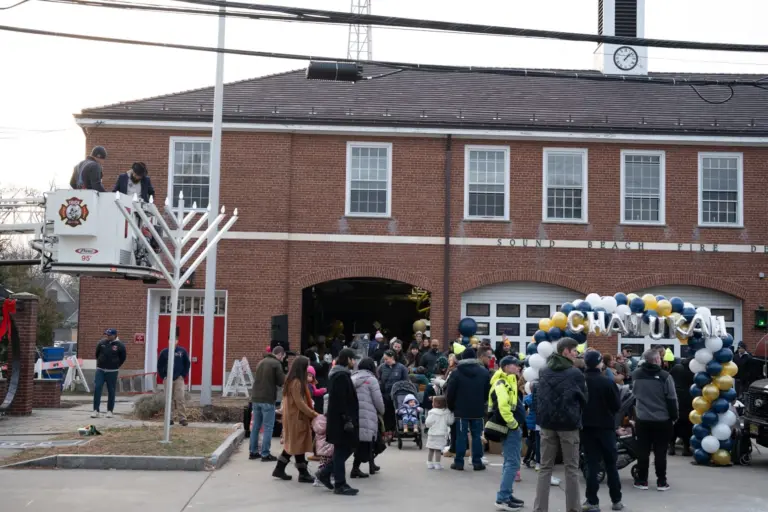By Marek Zabriskie
Does God have a plan for your life? All of us ask ourselves this question at one time or another. It is a question of great importance.
This question is evoked by the prophet Jeremiah when he wrote, “Now the word of the Lord came to me saying, ‘Before I formed you in the womb I knew you, and before you were born I consecrated you; I appointed you as a prophet to the nations.’” (Jer. 4:1)
To consecrate someone means to set him or her aside for God to work through. The Lord tells us that He consecrated Jeremiah to be a prophet before he took his first breath.
It signifies that God is with us at the moment of our creation and will equip us to meet our destiny. Have you ever had that sense that you were put on earth to play a significant role, that your life had a clear mission, that you were destined by God to carry out a task?
Winston Churchill was a direct descendant of the Duke of Marlborough, who rescued England during a very dark time. Churchill wrote a biography of his famous forebear, and Churchill noted that since he was eight years old, he, too, believed that he was destined to save England by leading his country in a great battle to preserve the nation. God had given him this destiny.
Did God put you on earth to fulfill a mission? Were you put on earth to bear and raise your children? Did God create you to practice medicine and save lives? Did the Almighty equip you to practice law, uphold justice, and apply our legal codes fairly? Did Yahweh give you the gifts needed to start a company or succeed in business and create jobs that generate wealth?
Do you sense God that is watching over you? Do you feel as though you are accompanied at all times by God? Did you sense that you were destined to meet and marry your spouse, to move to Greenwich, Connecticut, to serve God in particular ways and carry out something special?
Does God have a plan for you? Does everything happen for a purpose? This passage suggests that our lives are not accidental, but God has designed each of us for a special purpose.
Our task is to discern that purpose, to figure out what we excel at, and that purpose, if it is a godly purpose, must always entail making the world better for others.
If you were created to be a musician, then let your music glorify God. If you were created to teach, then inspire your students to think creatively and critically, to discern fact from fiction and hunger for knowledge. If you were put on earth to report the news, then do so honestly and with integrity, always free of bias. Does God have a plan for your life?
Forty years ago, a man named J.B. Phillips wrote a book called Your God is Too Small. It was a good book, making the often forgotten point that God is not only our God but their God, as well, a God not of the few or of the many, but the God of all. She is the God who laid the foundations of the earth and scattered the stars in the heavens.
But perhaps we must ask today whether “Your God is too big.” Do you think that God is too big to worry about people like you and families, communities, and countries at war, or parents being deported, or girls who cannot be educated in certain parts of the world? Is your God too big to worry about you and all of them?
Is God all powerful, all knowing, and all good as the medieval philosophers and theologians speculated? Is everything that occurs part of God’s plan?
When Flight 5342 from Wichita, Kansas carrying 64 persons recently crashed into an Army helicopter over the Potomac, leaving no survivors, was God behind this? Was this part of a higher purpose that we cannot comprehend? I think not.
In January of 1983, the famous preacher William Sloane Coffin’s 24-year-old son, Alex, a student at Boston University, was driving home a little past midnight in a rainstorm hours after having a few beers with a friend. His father had urged him to replace his windshield wipers, but he failed to do it. Alex accidentally drove his car into the Boston Harbor.
Ten days later, his father preached a famous sermon at the Riverside Church. He told his congregation, “Do you think that it is God’s will that there are no street lights along that stretch of road, and no guard rail separating the road and the Boston Harbor?”
“The one thing that should never be said when someone dies is, ‘It is the will of God.’ Never do we know enough to say that.” Then Coffin added these words, “My own consolation lies in knowing that it was not the will of God that Alex die; that when the waves closed over the sinking car, God’s heart was the first of all hearts to break.” Coffin was right.
Reading the Bible and attending church may keep our heads and our hearts in the right place and enrich our lives. Studies show that it will impact our health in positive ways and extend our life, but it will not protect us from harm.
Yet, as Coffin noted, “God gives all of us – minimum protection, maximum support.” We worship a God who does not protect us from suffering, but who suffers with us, and suffers for us as Jesus did upon the cross.
I believe that with every tragedy, like the recent plane crashes in Washington, D.C. and Philadelphia, God’s heart is the first to break. God dreams a dream for humankind, but we humans, often out of pride, ignorance, failure, or sin, transform that dream into nightmare.
Russia invades Ukraine. Hamas’ attacks Israel. Israel destroys Gaza. Tragedy unfolds in the Sudan and Yemen. Fentanyl kills hundreds of thousands. A child has a brain tumor. How do we make sense of it all?
Does God have a plan for your life? A woman whose husband died five years ago, told me recently that she thinks about him constantly. Then she added, “Perhaps it’s time for me to move on and find a new plan.” Perhaps we, too, need to move forward and find a new plan.
The Good News is that God has a plan for you. You were created to do something special, “to bear the beams of love” in your own unique way. You have free will. You can use or abuse it. You are free to sin, to mess up, make mistakes, and get lost, or you can use your freedom to love, heal, forgive, inspire, bestow grace, sacrifice and bring glory to God.
If you have lost our way, then you must begin the gentle process of discerning where God is calling you to go and to serve, not based on where you could have become five years ago or when you were born many years ago, but from where you are right now.
No matter how far off course your life has drifted, invite God to help you craft a plan that will allow you to use your gifts and talents, time and energy to bear the beams of love to others and see what happens.
The Rev. Marek Zabriskie is Rector of Christ Church Greenwich. He loves to meet people where they were at, hear their stories, and help them see where God is inviting them to go.




